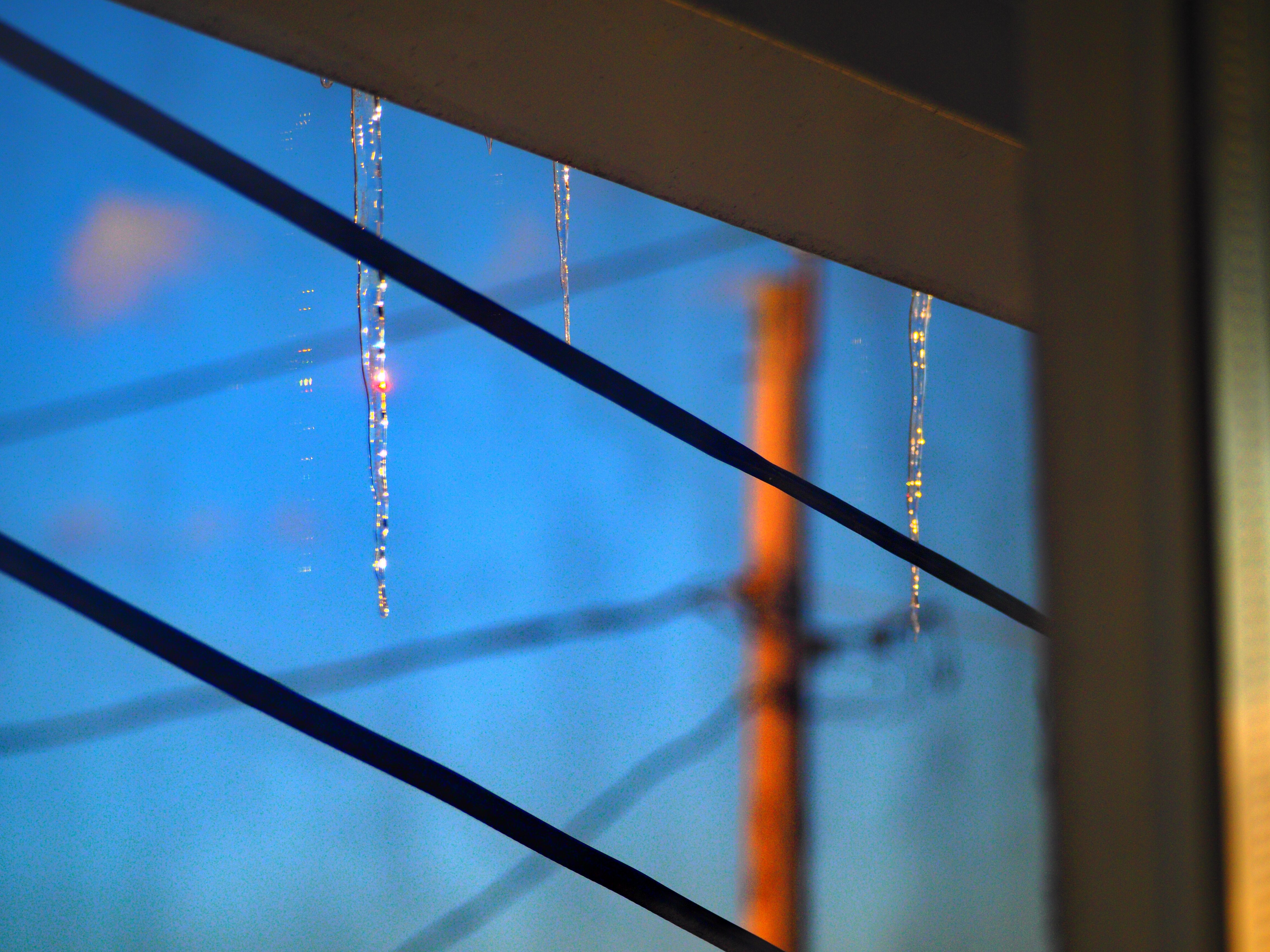-
Posts
44,789 -
Joined
Content Type
Profiles
Blogs
Forums
American Weather
Media Demo
Store
Gallery
Everything posted by LibertyBell
-

Occasional Thoughts on Climate Change
LibertyBell replied to donsutherland1's topic in Climate Change
That doesn't seem a little harsh to you? I didn't see what would have warranted that. Also, I can see that being used as a counterpoint, sometimes you need to be outside the system to truly see what a sick and bad system it is. And money is the problem not the solution. -
Don with all the warm anomalies out west is it possible that this winter could see coast to coast warmth with all the cold confined to Alaska?
-
arent second year la ninas usually really bad for us? its la ninas that come after el ninos that are really good and we are in the middle of the negative pdo cycle anyway
-
It seems as though there must be some sort of as yet proven 'Law of uncertain quotas' in complex systems that perturb reality. Just knowing about the propagation of fractal systems, seems there has to be. Almost like an 'emergence product function.' It would go like, 'for every 1 direct result of cause --> effect produced, there are 3 emergence: a secondary ... a subsequent tertiary ( meaning emergent because of the 2nd order ),' and on and so one. Such that if there are 2 direct ... the subsequent polynomial becomes complex really quickly as we add more direct consequence - that don't have to be laterally related, just existing as a result of the primary event. Nature actually works in this way, there are simple patterns in seemingly complex human behavior that mimics nature, it is part of group theory, where for example, the timings of bus drivers in Mexico matches the grouping of cells in the eyes of chickens. There is a well known formula that exists in nature and humans that maximizes efficiency.
-
I'm also wondering how many more variants we can get and will we make it to the end of the Greek alphabet and get to an Omega variant? If that happened it would be so scary....aside from what comes after Omega I had a thought in my head about how symbolic the letter Omega is. It could be "The One to end them all"..... a zombie virus (many think these are fiction but we actually see zombie parasites in the natural world, there is one that latches onto the brains of ants and makes them attack each other).....imagine if there was ever a human zombie virus like that and it ended up being the Omega variant? That would almost make it seem like reality is scripted like a movie lol, like everything is leading up to that eventual final climax. https://www.medicalnewstoday.com/articles/326871#1.-Zombie-ants https://www.medicalnewstoday.com/articles/326871#2.-Zombie-spiders https://www.medicalnewstoday.com/articles/326871#3.-The-reanimated-virus This last one is especially interesting In 2014, researchers from the Centre National de la Recherche Scientifique at Aix–Marseille Université in France dug a fascinating organism out of the Siberian permafrost: a so-called giant virus, about 30,000 years old, which they named Pithovirus sibericum. Giant viruses are called this way because, though still tiny, they are easily visible under the microscope. But there is something else that makes P. sibericum stand apart. It is a DNA virus that contains a large number of genes — as many as 500, to be precise. This is in stark contrast with other DNA viruses, such as the human immunodeficiency virus (HIV), which only contains about 12 genes in all. The size of giant viruses, as well as the fact that they contain such a large amount of DNA, can make them particularly dangerous, explain the researchers who discovered P. sibericum since they can stick around for an extremely long time. “Among known viruses, the giant viruses tend to be very tough, almost impossible to break open,” explain two of the virus’s discoverers, Jean-Michel Claverie and Chantal Abergel, in an interview for National Geographic. “Special environments such as deep ocean sediments and permafrost are very good preservers of microbes [and viruses] because they are cold, anoxic [oxygen-free], and […] dark,” they add. When “reanimated, P. sibericum only infected amoebas — archaic unicellular organisms — but happily not humans or other animals. Yet Claverie and Abergel warn that there may be similar giant viruses buried inside the permafrost that could prove dangerous to humans. Though they have remained safely contained so far, global heating and human action could cause them to resurface and come back to life, which might bring about unknown threats to health. “Mining and drilling mean […] digging through these ancient layers for the first time in millions of years. If ‘viable’ [viruses] are still there, this is a good recipe for disaster.” Jean-Michel Claverie and Chantal Abergel
-
Chris, haven't we been in the negative part of the PDO cycle for a few years now?
-

Occasional Thoughts on Climate Change
LibertyBell replied to donsutherland1's topic in Climate Change
lmao I was just reading this on Twitter. Our replacements are finally here, John! -
Right, it's very difficult not to have a 4" storm, but note that very few of those winters had 6" snowstorms and none of them had a 10" snowstorm. The same thing happened between 96-97 and 99-00
-
Or we could be back into an mid 80s to early 90s kind of pattern, which seems to be pretty stable and lasts for a decade lol
-
Is this what we had during the late 80s and early 90s that made those years suck so much? This same pattern that lasted for like 10 years lol?
-
and here we've gotten to 30-31 a few times but never any lower than that
-
why is it so hard to get any lower than this? to be fair we barely got below freezing here too
-
I have an old birdwatching/weather book with a map in it from the 40s and that refers to it as Idlewild too. How old is that airport? I take it the first data from there is from the mid 50s?
-
I thought it pretty strange that our low temps have been hanging out in the low 30s a lot, like it's some barrier we can't cross. Typically we get into the mid 20s by late November even in the city and local airports.
-
and no one wants to clear the foliage? Central Park is so huge why would it so bad if they cleared all the trees within a 30 feet radius of the equipment? Get a federal mandate to do it so they can do it over the objections of whomever is in charge of making those decisions locally. If the federal govt can come in and nab a police union leader for corruption they should be able to get a few trees knocked down.
-
why cant they just put it where it cant be accessed? Like put an electric fence around the area or something. The crime rate was really high in the 70s, the city was basically a giant slum, it's nothing like that anymore.
-
they couldnt even get todays forecast right
-
who in their right mind would steal weather equipment.....steal cars instead leave weather equipment alone it is of no value to the public
-
wtf is that headed here....42 and snowing here lol how?
-
wow any casualties with these? and what were the snowfall amounts with them?
-
I had an idea we would be in store for some good things that winter, even moreso than 1993-94 and it definitely got started quickly.
-
I remember this like it was yesterday but watching these videos makes it seem like it was a long time ago lol....how does that happen?
-
plane skidded off the runway at JFK and into the Bay on the second day of the storm when it switched back to snow and was snowing pretty heavily during the day three day storm we never got the predicted 15-20 but didnt care much when we got more than that in the Jan blizzard lol but this storm was underrated and there was still snow and ice on the ground and on the roads from this storm when we got the big blizzard



